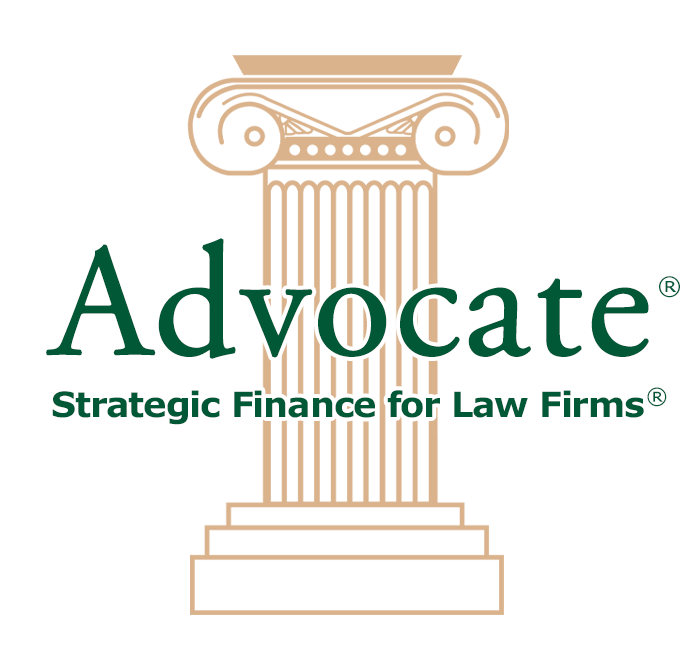
Authored By: Candace Whitman
Contingent-fee law firms operate under a unique financial model that can present significant challenges. Unlike traditional firms that bill by the hour, these firms only get paid if they win or settle a case. This model can lead to a range of obstacles that can impede growth and success.
In his insightful book, How David Beats Goliath: Access To Capital for Contingent-Fee Law Firms, Michael J. Swanson, retired Advocate Capital CEO, delves into the financial hurdles contingent-fee law firms frequently encounter. From cash flow issues to managing case expenses, Swanson thoroughly examines these challenges and explains the sources of capital available to contingent-fee law firms.
This blog will explore five financial challenges highlighted in Swanson's book. Whether you're a small firm looking to stabilize your finances or a larger firm aiming to optimize your operations, these insights will equip you with the knowledge and tools needed to succeed.
Difficulty Acquiring Traditional Banking Loans
One of the most significant financial challenges contingent-fee law firms face is the difficulty in acquiring traditional banking loans. As Michael J. Swanson explains in How David Beats Goliath®, "Lending institutions do not recognize outstanding reimbursable case expenses as a valid asset, nor are they good at recognizing future contingent-fee receivables as a valid asset, either." This lack of recognition makes it challenging for these firms to secure loans based on their unique financial structures. Without access to traditional financing, law firms must find alternative ways to manage cash flow and fund their operations, often turning to specialized financial services that understand and cater to their specific needs.
Can't Sell Stock
Another significant financial challenge for contingent-fee law firms is the inability to sell stock to raise capital. As Swanson points out in How David Beats Goliath®, "…because a non-lawyer cannot be an equity partner in a law practice, or otherwise hold a profit interest in a lawsuit, law firms find themselves at a distinct disadvantage versus other small businesses that seek capital." This restriction means that law firms must rely on alternative financing methods to fuel their growth and sustain operations, making capital acquisition more complex and challenging.
Opportunity Costs
One of the hidden financial burdens for contingent-fee law firms is the significant opportunity cost associated with having after-tax cash tied up in ongoing cases for extended periods. Swanson explains:
"They've made an interest-free loan of hundreds of thousands, if not millions of dollars to their firm, and those dollars stay tied up in their cases until they ultimately wind their practice down and retire. And, of course, at retirement, the invested cash is worth a lot less than it was 20 or 30 years prior. Meanwhile, they've missed out on the opportunity of using it to do something else, such as hire more attorneys, take on more cases and help more plaintiffs."
Thin Balance Sheets
Many contingent-fee law firms also struggle with thin balance sheets. Swanson explains, "Most law firms do not own much in the way of assets, whether in the form of cash or equipment or other property. A typical balance sheet shows a little bit of cash along with outstanding case expenses that are due to be reimbursed to the firm." On the liability side, firms often have small lines of credit, as significant borrowing requires collateral that these firms typically lack. Consequently, the net worth of a contingent-fee law firm is usually small, sometimes even negative, limiting its financial flexibility and growth potential.
Accounts Receivable
The unique billing structure of contingent-fee law practices further complicates their financial situation, particularly concerning accounts receivable. Swanson highlights, "The problem for a contingent-fee law practice is that it does not have what is normally viewed by lenders as a valid list of accounts receivable because they don't bill by the hour and they don't regularly send out invoices." Since these firms only receive fees and reimbursable expenses upon the successful conclusion of cases, their inventory of cases in process holds little to no value in the eyes of most lenders. This perception makes securing traditional financing even more challenging for contingent-fee law firms.
About How David Beats Goliath
Swanson's How David Beats Goliath goes more in-depth into the challenges plaintiff's law firms face, basic financial concepts law firms should know, the sources of capital available to them, and more. The book's title was inspired by the similarities between the plaintiff's law firm battle against large corporations and insurance companies and the story in the Bible of David facing the giant Goliath. If you'd like to learn more about the book, click here.
How Case Cost Funding Can Help
Advocate Capital's case cost funding is a strategic solution to these financial challenges that contingent-fee law firms face. By providing access to capital specifically for case expenses, Advocate Capital helps law firms overcome the difficulty of acquiring traditional banking loans, which often do not recognize outstanding reimbursable case expenses or future contingent-fee receivables as valid assets. Advocate Capital offers case cost financing at an annual cost of less than 1%*. With your local bank, funding will potentially cost about 7% to 10% annually. We understand your business model and the value your cases hold.
Case cost funding alleviates the opportunity costs associated with having after-tax cash tied up in ongoing cases for years, allowing firms to redirect those resources towards growth opportunities like hiring more attorneys and taking on additional cases. If case expense financing is implemented properly, the cost to the firm is next to nothing because the firm can recoup the borrowing costs at the successful conclusion of every case they win. When a case concludes, the firm uses the proceeds from the case to pay the principal borrowed for case expenses. Using our money, you can get your post-tax profits out of your cases and back into your bank account.
Advocate Capital's case cost funding enables law firms to maintain a healthier cash flow, grow their firm, and ultimately enhance their ability to help plaintiffs achieve justice. If you are interested in learning more, our Directors of Strategic Solutions can answer your questions and help you determine the best financing solution for your law firm. Click here to find your rep. They will learn about your firm, answer any questions, give you a demo of our AdvoTrac Case Expense Financing Software, and help you apply.

